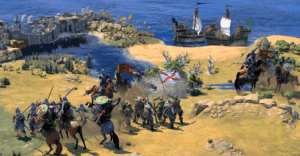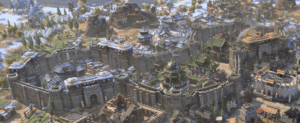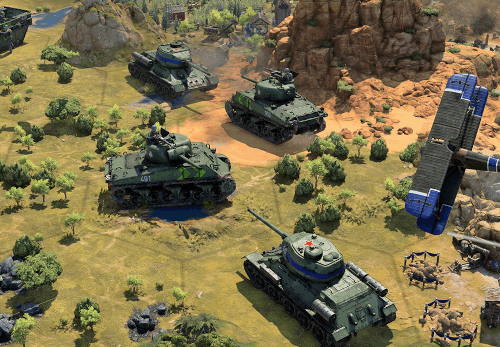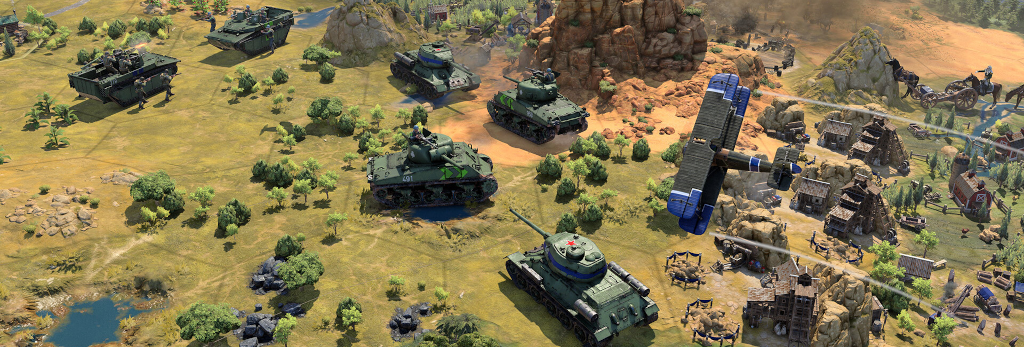After years of anticipation following Civilization VI’s 2016 release, Sid Meier’s Civilization VII finally launched this week, bringing with it some of the most significant changes the series has seen in its storied history. Released on February 11th across PC and consoles simultaneously, this new installment has already sparked heated debates among strategy gaming veterans and newcomers alike.
Revolutionary Age System
 The most dramatic departure from previous Civilization games is the new three-stage Age system that divides gameplay into distinct historical periods: the Antiquity Age, Exploration Age, and Modern Age. Unlike previous iterations with more granular era divisions, each of these Ages features unique gameplay systems, tech trees, and civilization options. This approach creates what feels like three interconnected strategy games in one, with meaningful choices that carry forward as you progress.
The most dramatic departure from previous Civilization games is the new three-stage Age system that divides gameplay into distinct historical periods: the Antiquity Age, Exploration Age, and Modern Age. Unlike previous iterations with more granular era divisions, each of these Ages features unique gameplay systems, tech trees, and civilization options. This approach creates what feels like three interconnected strategy games in one, with meaningful choices that carry forward as you progress.
What makes this system truly revolutionary is how it handles civilization progression. Rather than sticking with one civilization throughout the entire game, players must choose a new civilization to transform into at the beginning of each new Age, with options determined by their accomplishments and choices in the previous Age. This creates a more dynamic historical narrative that better reflects how cultures evolve, merge, and transform over time.
Leaders Decoupled from Civilizations
 Another major innovation is the separation of leaders from their civilizations. For the first time in franchise history, players can “choose [their] leader separately from [their] civilization,” allowing for unique combinations of leadership abilities and civilization bonuses to create entirely new strategic possibilities. This system allows for both historically accurate pairings and creative alternative history scenarios.
Another major innovation is the separation of leaders from their civilizations. For the first time in franchise history, players can “choose [their] leader separately from [their] civilization,” allowing for unique combinations of leadership abilities and civilization bonuses to create entirely new strategic possibilities. This system allows for both historically accurate pairings and creative alternative history scenarios.
The game also expands the definition of what constitutes a “leader,” now including philosophers, religious figures, and scientists who weren’t heads of state but nevertheless had profound influences on human history.
Cross-Platform Launch and Multiplayer
In a significant departure from previous releases, Civilization VII launched simultaneously across PC, Mac, PlayStation 5, PlayStation 4, Xbox Series X/S, Xbox One, and Nintendo Switch. This unified release strategy demonstrates Firaxis’s commitment to platform parity, ensuring console players aren’t left waiting for ports as they have been with previous entries.
Even more impressive is the implementation of cross-play and cross-progression support, allowing friends to play together regardless of platform and carrying save data between devices. This feature has already proven popular among the community, though some technical issues with cross-platform multiplayer have been reported that 2K has promised to address in an upcoming patch.
Early Player Reception
The first few days since launch have revealed a divided player base. Many longtime fans are praising the bold design choices and fresh approach to historical progression, while others are struggling to adapt to the significant departures from established formula. Interestingly, some player statistics have shown that previous entries like Civilization V and VI are still maintaining comparable or even higher daily active player counts than the new release, suggesting that the transition may take time.
Technical issues have somewhat marred the launch experience, with PC players reporting occasional crashes and performance problems, while console players have encountered UI and control issues. Firaxis quickly released Patch 1.0.1 on February 10th, one day before the official launch, which included improvements to the user interface and tooltips along with some balance adjustments, but more substantial updates are clearly needed.
The Road Ahead
Firaxis isn’t wasting any time when it comes to post-launch support. The next major update, version 1.1.0, is already scheduled for March 4th, bringing with it the first half of the “Crossroads of the World Collection” paid DLC (included with Deluxe and Founders Editions) as well as free content for all players.
This update will introduce a new natural wonder (the Bermuda Triangle) along with significant changes to the Modern Age’s Cultural Legacy Path and Victory conditions. Players can also look forward to a second update on March 25th that will complete the Crossroads collection with additional civilizations and leaders.
For PC Multiplayer Enthusiasts
 As a PC multiplayer-focused gaming site, we’ve been particularly interested in testing the competitive aspects of Civilization VII. The multiplayer experience offers some thoughtful improvements over previous entries, including smoother turn transitions and better team gameplay options. Multiplayer matches can be played as epic multi-Age campaigns or confined to a single Age, allowing for both marathon sessions and quicker competitive games.
As a PC multiplayer-focused gaming site, we’ve been particularly interested in testing the competitive aspects of Civilization VII. The multiplayer experience offers some thoughtful improvements over previous entries, including smoother turn transitions and better team gameplay options. Multiplayer matches can be played as epic multi-Age campaigns or confined to a single Age, allowing for both marathon sessions and quicker competitive games.
However, we’ve encountered some frustrating desync issues when playing cross-platform, and the balance between civilizations in competitive play still needs refinement. The separation of leaders from civilizations has created some surprisingly powerful combinations that threaten to dominate the competitive meta unless addressed in future balance patches.
Early Verdict
After our first week with Civilization VII, it’s clear that Firaxis has taken significant risks with the franchise formula. The Age system creates a more dynamic and historically interesting experience, while the decoupling of leaders from civilizations offers unprecedented strategic flexibility. However, technical issues and balance concerns still need addressing.
For longtime Civilization fans, this entry requires an open mind and willingness to relearn some fundamental aspects of the series. Those able to embrace the changes will find a fresh take on the 4X genre that breathes new life into the franchise, while those who prefer the traditional Civilization experience may want to wait for several patches before diving in.
We’ll be continuing our coverage with more detailed multiplayer strategy guides and civilization analyses in the coming weeks. For now, one thing is certain: Civilization VII represents the boldest reinvention the series has seen in decades, for better or worse.



